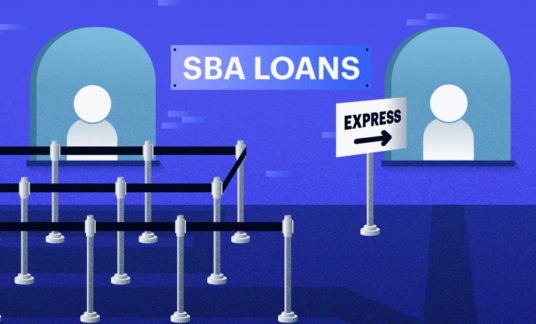Business ownership comes with its fair share of obstacles. A minority business enterprise (MBE), however, can face distinct challenges. Case in point: a minority business owner is 3 times more likely to be denied a loan than a white counterpart. However, there are programs available to help you level the playing field and reach your goals.
Minority-owned business certification offers benefits and various forms of assistance that can be the difference between lagging behind competitors and becoming leaders in your industry.
Let’s go through how to get certified as a minority-owned business, the available programs and how a minority-owned business benefits from certification.
What Are Minority-Owned Business Certifications?
For qualified applicants, minority-owned business certification benefits include everything from increased networking opportunities to more favorable odds in obtaining lucrative government contracts.
Minority-owned business certification requirements include the following:
- The business is at least 51% owned by a person (or people) who is a U.S. citizen and member of a racial minority group, including Black/African American, Hispanic, Asian or Native American.
- At least 51% of the day-to-day operations and decisions are handled by a person (or people) who is a racial minority.
Obtaining minority-owned business certification in 2 main programs can lead to many tangible benefits.
- The National Minority Supplier Development Council (NMSDC) has helped minority-owned businesses realize these benefits for years. They’ve created the Minority Business Executive program to provide certification that can give you access to opportunities you may not have had before.
- The Small Business Administration (SBA) has its own initiative, the 8(a) program. Although there are multiple programs — the 7(a) and 504, namely — that provide loans, this one does not directly involve money. Instead, the SBA aims to assist socially and economically disadvantaged small businesses with winning government contracts. Participation only lasts for 9 years.
-
Small Business Tip: At this time, there are no specific minority-owned business tax benefits. However, there are federal tax credits to those operating in underserved communities filled with socially and economically disadvantaged citizens. If you serve one of these areas, your minority-owned business may benefit from a tax break.
How to Get MBE Certification
Whether you choose to apply for one or both of the NMSDC Minority Business Executive or SBA 8(a) programs, the process is simple.
Requirements
The SBA 8(a) program is meant for business owners of certain racial, ethnic, gender or military backgrounds. Here we’ll focus on the first 2.
-
For more information on programs that help veteran and women-owned businesses, keep up with our business management blog.
The SBA and NMSDC require businesses wishing to be certified to be at least 51% owned by one or more qualifying minority owners. The Minority Business Executive program has a strict requirement that the owner(s) be of at least 25% minority heritage. Applicants must also be U.S. citizens at the time of certification.
Eligible racial and ethnic groups include:
- Asian Americans
- African Americans
- Hispanic Americans
- Native Americans
- Alaskan Natives
- Hawaiian Natives
- Those belonging to a state- or federally recognized American Indian tribe
The way you run your business itself also determines eligibility. To meet the minority-owned business certification requirements, you must:
- Run a for-profit company
- Be located within the territorial U.S.
- Be an active owner, having a hand in the daily operations and decision making of the company
The SBA 8(a) program has additional requirements for their MBE certification applicants. You must:
- Be classified as a small business under government size standards
- Not be a former participant in the program
- Have a personal net worth under $250,000
- Not have an average adjusted gross income over $250,000 for 3 years
- Have less than $4 million in personal assets
Both institutions will verify your eligibility via screenings, interviews and site visits based on the information you provide in your application.
Applying for the NMSDC Minority Business Executive Program
If you’ve decided to apply for the Minority Business Executive program, first register on the NMSDC website. Then gather the necessary documents and fill out the application.
Some of the documents you’ll need include:
- Proof of citizenship
- Business history
- Agreements pertaining to ownership, operation and control of the business
- Certificate/Article of Incorporation (if applicable)
- Bylaws and amendments (if applicable)
- Stock certificates and stock ledger (if applicable)
- Voided checks and bank statements
Once you complete the application and pay the fee, it takes up to 90 days to process. If the minority-owned business certification committee approves you, the application will be handed off to the board for final judgment. If they deny your application, you can file an appeal to be reconsidered.
Applying for SBA 8(a) Certification
First, make sure to register with the System of Award Management (SAM). This registry is run by the General Services Administration and allows you to conduct business with the government.
To register, you’ll need:
Next, create an account on the SBA certification page. They’ll ask you to provide certain information about your business at this point.
Make sure to have the following on hand:
- Business plan
- Financial documents
- Bank statements
- Profit and loss statements
- Personal and business tax forms
Once you have an account, follow the instructions for the application process.
-
Note: SBA 8(a) certification is contingent upon yearly reviews. You must ensure your business follows all guidelines or else your membership will be terminated.
Minority Business Executive Certification Benefits
Run by the NMSDC, the MBE program aims to assist minority business executives through education and networking. This is accomplished through various ways.
Customized Training
The NMSDC offers both personalized and group training courses to its members.
The following are some of the business development programs and seminars offered through the program:
- Emerging Young Entrepreneurs (EYE): For young, high-potential business owners
- Program Managers Seminar: Conference for Minority Business Executive suppliers at all experience levels
Attendance at these conferences and classes will give your business insight into modern management, marketing and other strategies to promote growth.
Business Opportunity Fairs
In addition to educational events, the NMSDC also brings you face-to-face with potential clients and customers. They aim to get your company in front of hundreds of prospects that want to work with minority-owned businesses in one place.
Corporate Partners
If you’re a minority business enterprise with a proven ability to fulfill national contracts, you could be selected for Corporate Plus membership. This group establishes connections with corporations that are looking to work with minority-owned businesses. The list is filled with Fortune 500 companies, including giants such as Google, Apple, IBM and Johnson & Johnson.
Networking
Another key advantage of MBE certification is that you get to meet and consult with other members. These mentors can provide invaluable insights into how your business can be successful. In some cases, members even come together to form joint ventures.
SBA 8(a) Certification Benefits
The SBA 8(a) program is not intended specifically for a minority business enterprise. Instead, it focuses on assisting all socially and economically disadvantaged owners with lucrative local, state and federal government contracts.
While it doesn’t provide the events and corporate partnerships that the NMSDC Minority Business Executive program does, it can provide opportunities for a minority-owned business to win government contracts as well as other benefits.
Contracting Opportunities
One of the main benefits of the SBA 8(a) program for a minority-owned business is access to government contracts. While both provide an advantage over those without certification, the program provides this opportunity to a minority business enterprise in 1 of 2 ways:
Competitive Set-Aside Contracts
For projects under $150,000, government agencies will usually set aside contracts for small businesses. Most of these will be open to anyone that can fulfill them. Some, however, are specifically set aside for 8(a) members.
Although you’ll still need to bid on them, there might be a preference for a minority-owned business if there are similar bids.
Sole-Source Contracts
In some cases, your business may be the only applicant that’s able to fulfill a contract. This means you’ll face no competition, eliminating the bidding process.
These are often lucrative contracts — worth up to $4 million for goods and services or $6.5 million for manufacturing projects.
Besides being 8(a) certified, you’ll need to register on the SAM website to be eligible for sole-source contracts.
Mentor-Protege Program
One of the minority-owned business benefits of the 8(a) program is the Mentor-Protege program. The SBA gives smaller, newly certified businesses the opportunity to work with mentor companies. The relationship aims to offer guidance that can be used during the 9 years in the 8(a) program and beyond.
Some of the ways mentors have helped their protege companies include:
- Helping businesses new to government contracting learn how to compete
- Providing financing through investments and/ or loans
- Giving technical/management advice
- Forming joint ventures












